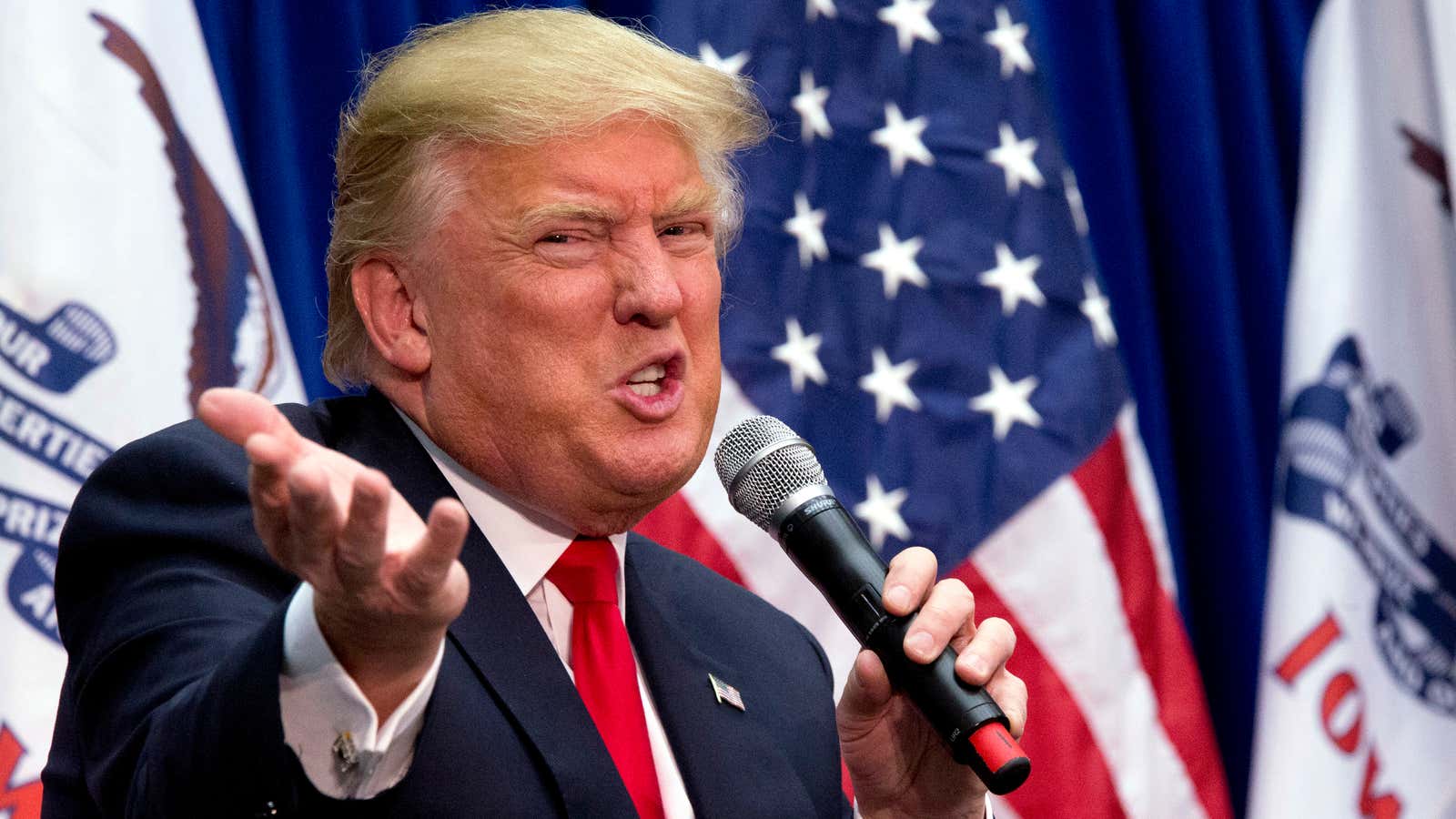Well, Trump, we’re stumped.
Pulling out of the Fox News debate days before the Iowa Republican presidential caucuses certainly fits with Donald Trump’s erratic campaign: Do something unexpected, say something wild, collect the media coverage and remind voters who’s out there doing the things that are being done.
Trump holds the lead in Iowa public opinion polls and broader nationwide surveys, so it’s hard to say the strategy isn’t working.
We’re reminded of the infamous description of the Bush White House attributed to Karl Rove: “When we act, we create our own reality. And while you’re studying that reality—judiciously, as you will—we’ll act again, creating other new realities, which you can study too, and that’s how things will sort out.”
So what kind of reality has Trump created?
The ostensible reason for this fight is debate moderator Megyn Kelly, the Fox News anchor who asked Trump some tough questions about his treatment of women in a previous debate. This led Trump to crudely suggest that Kelly was unhinged by her menstrual cycle. The incident didn’t destroy Trump’s appeal among women voters, though it probably didn’t help much: A recent poll shows Trump has the support of 25% of likely female Republican caucus-goers in Iowa, but 33% said they “definitely could not” support him.
Fox News and Trump’s rival candidates cast his pull-out as a sign of weakness and fear, suggesting if Trump couldn’t handle talking to Kelly, how could he deal with autocratic world leaders (or Hillary)? Historically, voters tend to be unimpressed if a candidate appears either afraid or too arrogant to subject themselves to public scrutiny.
Trump may not be afraid not so much of Kelly but of this last debate itself. All of his rivals, with time running out, were likely to gang up on him. In the previous debate, his primary Iowa rival, Ted Cruz, demonstrated his ability to push Trump off balance, at least for a moment, and earn some plaudits. Dodging a rematch makes sense from that standpoint—even though Trump was widely seen as winning that debate, and most of the others.
Here’s the counter-argument: Trump depends most of all on new caucusers and the less-politically engaged—just the kind of people who might tune into the debate as they finally get around to figuring out who to vote for. Missing a chance to sell himself to these voters might be a problem for his campaign, since we can expect everyone on stage to say something bad about Trump, too. But these voters might also end up seeing Cruz come under fire from all sides—and that is good for Trump.
And what about Fox News overall, the beacon of conservative conventional wisdom that has served to unite Republicans in ways even the party apparatus hasn’t managed? Well, with the diffusion of conservative media across multiple platforms—especially talk radio and the internet—Fox News isn’t necessarily the party’s lodestar. And Trump, despite what he may say, is not really a conservative in many senses, but a nationalist-populist unmoored to religious or political ideology. As the rift in the Republican party continues to grow, maybe Fox News is another one of the casualties.
The coming contests will test Trump’s ability to actually get his ramshackle coalition to the polls. But so far, his calculation that no amount of madness can bring him down—and indeed, that any controversy can only buoy him—hasn’t failed a single time.
